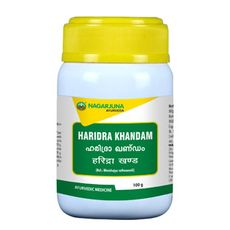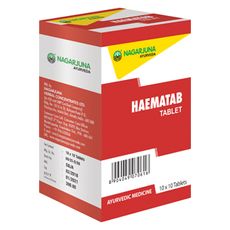 Where should we deliver your order?
Where should we deliver your order?All About Panchakarma As An Ayurvedic Detox

Ayurveda, a magnificent healing system, was first mentioned in the 5,000-year-old Vedic literature as comprehensive lessons on sustaining health. The fact that this antiquated medication is still in use today shows just how much information it has when it comes to understanding how humans can live happy and healthy lives.
The main aim of Ayurveda is to awaken your body's inherent capacity to rebalance through the use of clear but profound principles. These beliefs are common to many modern indigenous societies, especially when it comes to the importance of restoring harmony or balance to foster good health. The Ayurvedic teachings also incorporate love and compassion for each person's healing journey as well as a reminder to see yourself in the same light.
In this blog, you will discover the realm of Ayurveda, specifically the Panchakarma cleansing and regeneration process.
What is Panchakarma?
Panchakarma is basically a purification procedure; it cleanses the mind-body system of accumulated impurities. The Sanskrit words Pancha, which means "five," and karma, which means "action," allude to five different Ayurvedic methods of cleansing and renewal.
A thorough Panchakarma detox procedure was nevertheless necessary even if there weren't as many causes of unwholesome accumulations in the body at the time it was first developed thousands of years ago. In the modern world, where poor nutrition, stress, and environmental risks are commonplace, Panchakarma can be very helpful.
During a Panchakarma treatment, plenty of time and space is provided for rest and experience processing. Each stage of the programme has a specific goal and is intended to ultimately restore our body's natural capacity for healing. Our body is highly adept at self-cleansing and is well-equipped to eliminate waste through a variety of channels, including:
- Sweat Ducts
- Vascular System
- Urinary System
- Intestines
People frequently wonder why Panchakarma is needed given our bodies already have a system in place for detoxification. In order to illustrate their point, Ayurvedic texts suggest considering the lifespan of a well-kept car and its ability to be driven for a long period of time.





Traditional and Modern Panchakarma
Like anything that has been around for a very long time, Panchakarma has changed over time, and there are different ways to conduct it across India. Here are the five traditional components of Panchakarma therapy in its original written form for some background information:
Panchakarma has evolved over time, much like everything that has been around for a very long time. It is practised in various ways throughout India.
Here are the five traditional components of Panchakarma therapy:
- Basti: Herbalized Oil Enemas
- Nasya: Nasal Irrigation
- Vamana: Therapeutic Vomiting
- Virechana: Purgation
- Raktamokshana: Bloodletting
Some of these therapies have been modified for obvious reasons.
A Panchakarma programme usually includes the following:
- Herbal Oil Massage
- Steam Bath
- Cleansing Enema
- Nasal Administration
- Gentle Laxatives (Senna)
- Specialised Diet
The five methods continue to serve as the cornerstone of these effective and long-lasting therapeutic techniques. The entire programme is designed to facilitate a deep-seated release of stress that has, in some cases, been stored for years. It also works to heal our bodies. Panchakarma frequently proves to be an unanticipated and powerful detour into the healing process.

Also Read: What is Panchakarma in Ayurveda and What are its benefits?
An Overview of Detoxification
According to Ayurveda, it is imperative for optimum health that our body and mind have the ability to absorb all of life's events, both good and bad. Determining how life is metabolised on all levels is why digestion, or Agni, is so important. The efficiency with which food, feelings, and experiences—all types of information—are transformed into sustenance is regulated by an element known as Agni, which is also characterised as gastric fire, enzymes, and metabolism.
When Agni, also known as the GI tract, is healthy, everything is adequately broken down and absorbed into our mind-body physiology. Our body and mind are purified from all unwanted things. We should start keeping track of how we interpret our surroundings and how they affect us.
When Agni is weak, food, experiences, and emotions are not properly digested, which causes a collection of unwanted impurities, also known as poisons. These partially metabolised substances are known as ama in Ayurveda and are considered poisonous residue. The pathways in the body responsible for waste disposal and circulation get clogged when ama is present. Thus, the mind-body physiology is denied proper assimilation and sustenance.
Ama can be characterised as:
- Heavy
- Thick
- Cold
- Foul
Agni can be described as:
- Light
- Clear
- Hot
- Pure
Which one better expresses how we feel? Ama, which accumulates over time, affects mental and physical function and gives the impression that everything is exceedingly energy-intensive. The body is exerting more energy to achieve what it ordinarily does with ease. Once the pollutants have been eliminated, balance and harmony can be entirely restored. Once Ama is weak and Agni is strong, facing life will be much easier.
In today's busy, frantic, and poisoned culture, our bodily and mental systems are put under a significant lot of stress, especially over time. We undoubtedly feel it even though our eyes cannot see it. Stress is a significant problem and the cause of many illnesses. How can we focus on leading the joyful life that Ayurveda promotes while we feel miserable? In order to retain optimum health, one must first undertake the Panchakarma procedure to cleanse the ama or impurities.

Contraindications for Panchakarma
Following are some conditions in which Panchakarma is not recommended:
- Lactation
- Pregnancy
- Fever
- Bleeding
- Ulcers
- HIV or AIDS
- Hypertension
- Congestive Heart Failure
Conclusion
The Panchakarma treatments revitalise the cells and tissues in addition to removing the toxins that cause the sickness. A significant section of the population today is suffering from the negative consequences of stress and worry, which lead to illnesses like poor digestion, loss of sleep, allergies, heart conditions, diabetes, chronic fatigue, cancer, osteoporosis, high blood pressure, and asthma, etc. These illnesses are primarily caused by the body's deeply ingrained metabolic toxins, which allow tissues and channels to repair permanently.
This treatment is a therapeutic alternative for those with disorders as well as a preventive choice for healthy people to maintain and enhance great cellular function. It's an effective method of treatment for maintaining and advancing good health.
Contact the top Panchakarma expert Dr Shivani Nautiyal at HealthyBazar for more details and to receive the Panchakarma consultation online. Furthermore, you can also purchase 100% genuine Ayurvedic, Unani, and herbal medicines on this site at an affordable price.
This article is written/approved by:

Dr. Shivani Nautiyal
Dr. Shivani Nautiyal is a renowned Ayurvedic physician, Panchakarma therapies specialist, and detox expert who has made significant contributions to the field of natural holistic healing and wellness. With her profound knowledge, expertise, and compassionate approach, she has transformed the lives of countless individuals seeking holistic health solutions. She is a Panchakarma expert, which are ancient detoxification and rejuvenation techniques. She believes in the power of Ayurveda to restore balance and harmony to the body, mind, and spirit.

























